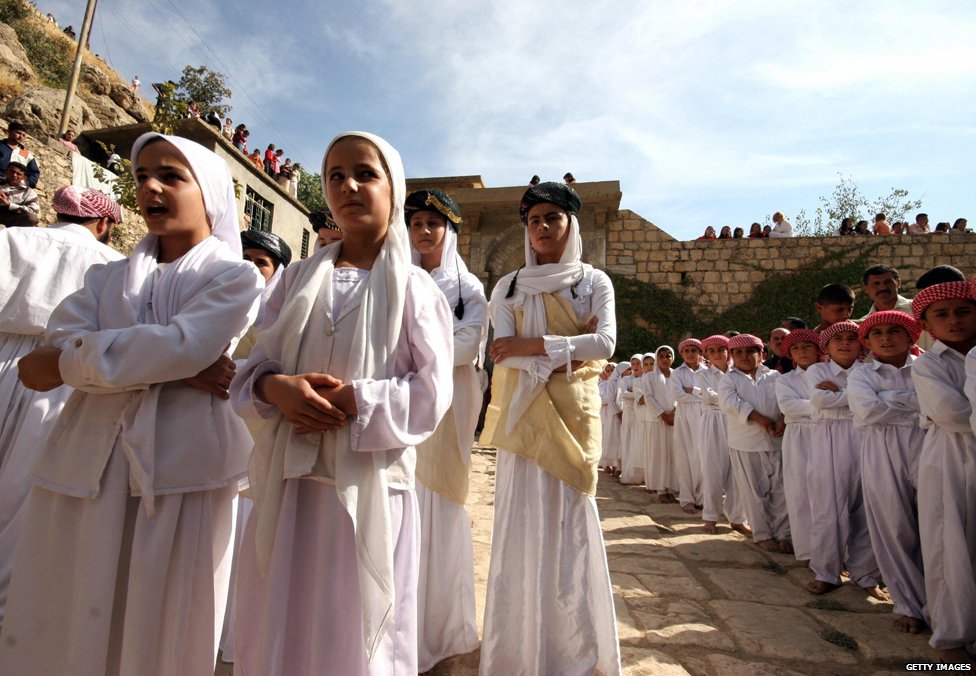The Yazidi people are an ancient religious and ethnic group primarily residing in the region of Kurdistan, which is located in present-day Iraq, Syria, and Turkey. They have a unique culture, long and rich history, as well as a fascinating spiritual belief system. In this article, we will explore the biography and discography of the Yazidi people, delving into their religious practices and shedding light on their traditional way of life.
Biography of the Yazidi People
The Yazidi people trace their roots back to ancient Mesopotamia, the cradle of civilization, where their distinct culture and customs were formed. They have faced a long history of struggles and persecution due to their religious beliefs, which are often misunderstood and misrepresented.
The Yazidis practice a religion called Yazidism, which is a syncretic faith combining elements of ancient Mesopotamian religions, Zoroastrianism, and Islam but is distinct from all of them. It revolves around the worship of a supreme being known as Melek Taus, or the Peacock Angel. The Peacock Angel represents divine purity and is revered as the chief figure in the Yazidi religious pantheon.
Yazidism emphasizes the importance of the soul and its journey towards enlightenment. They believe in the existence of heaven and hell, with the ultimate goal being the reunion of the soul with God. The Yazidi religious calendar is marked by significant events and festivals, where adherents come together to celebrate and reaffirm their faith.
Discography of the Yazidi People
The Yazidi people are known for their vibrant artistic expressions, particularly in the field of music and dance. Music plays a significant role in their religious ceremonies and cultural celebrations, reflecting the deep spirituality and joy intrinsic to their beliefs.
Traditional Yazidi music often incorporates instruments such as the daf (a type of frame drum), the zurna (a woodwind instrument), and the tambourine. These instruments create a rhythmic and lively atmosphere during their gatherings, eliciting feelings of unity and connection among the participants. The melodies are often enchanting and captivating, resonating with the listeners and transporting them to a higher realm of consciousness.

Aside from music, the Yazidi people also have a rich tradition of dance. Their dances are vibrant and energetic, reflecting the joy and exuberance of their religious celebrations. The movements are often characterized by rhythmic footwork, graceful arm gestures, and intricate formations. These dances serve as a form of spiritual expression, allowing the Yazidis to connect with their faith and express their devotion.
Yazidi Way of Life: Cultural Practices and Traditions
The Yazidi people have distinct cultural practices and traditions that have been passed down through generations. These practices play a significant role in shaping their identity as a community and fostering a sense of unity among the Yazidi people.
One essential aspect of Yazidi culture is the emphasis on family and community values. The family is considered the cornerstone of Yazidi society, and strong family ties are highly valued. Extended families often live in close proximity to each other, further strengthening the bonds between relatives.
Another notable tradition is the concept of jam (communal solidarity), which refers to the obligation and responsibility of every Yazidi towards their community. This concept promotes mutual support, collaboration, and the welfare of the entire Yazidi people. The idea of jam fosters a deep sense of belonging and promotes harmonious relationships within the community.
The Yazidi people also have specific cultural practices related to marriage and gender roles. Marriage is seen as a sacred bond and is often arranged within the community. The bride and groom’s families come together to celebrate the union, with festivities lasting several days. In Yazidi culture, men and women have distinct roles and responsibilities within the household, with men often taking on more public and authoritative roles, while women are responsible for domestic affairs and nurturing the family.

Conclusion
The Yazidi people are a remarkable community with a rich cultural heritage and unique religious practices. Their biography and discography provide insight into their history, values, and ways of expressing their spiritual devotion. Although they have faced numerous challenges and persecution throughout history, the Yazidi people continue to preserve their traditions and rituals, passing them down to future generations. By understanding and appreciating the Yazidi culture, we can foster inclusivity and respect for diverse religious beliefs and create a more harmonious world.
If you are interested in learning more about the Yazidi people and their traditions, we encourage you to explore further resources and engage in respectful conversations with members of the community. By listening to their stories and experiences, we can deepen our understanding and promote a more inclusive society.













